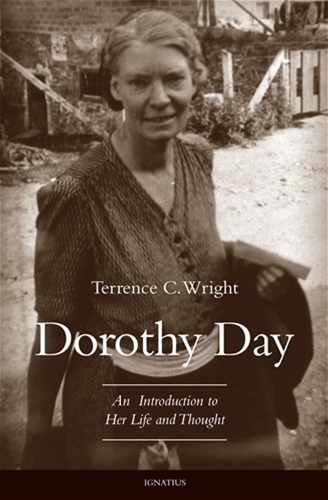Podcast: Play in new window | Download (Duration: 30:46 — 21.2MB) | Embed
Subscribe: Apple Podcasts | Spotify | Amazon Music | Android | Pandora | iHeartRadio | JioSaavn | Podchaser | Gaana | Podcast Index | Email | TuneIn | Deezer | Anghami | RSS | More

Terrence Wright – Dorothy Day: An Introduction to Her Life and Thought on Inside the Pages with Kris McGregor
Dr. Terrence Wright discusses his book Dorothy Day: An Introduction to Her Life and Thought, highlighting Day’s complex early years, her lifelong attraction to God, and the gradual, uneven journey that led her into the Catholic Church. He explains how childhood influences, the beauty of Catholic worship, and key encounters—especially with a compassionate Sister of Charity who helped her seek baptism for her daughter—opened her heart to grace. Her appreciation for strong spiritual figures like Teresa of Ávila influenced difficult but decisive choices she made in relationships, choosing fidelity to the Church even when it meant personal sacrifice.
The conversation then turns to Dorothy Day’s partnership with Peter Maurin and the birth of the Catholic Worker Movement, rooted in Matthew 25, the Sermon on the Mount, and a rhythm of work and prayer reminiscent of Benedictine spirituality. Wright describes the interplay of her writing, social action, and interior life, as well as her later years—marked by family reconciliation, spiritual depth, and enduring concern for the poor. He reflects on her relevance today as a witness of mercy whose story resonates deeply with modern struggles, and he encourages listeners to seek her intercession, especially for those who feel lost or burdened by the “long loneliness.”
Discerning Hearts Reflection Questions
- How does Dorothy Day’s slow, imperfect path to conversion invite me to see God at work in the unfinished parts of my own life?
- When have I experienced someone accompanying me with compassion the way Sister Aloysius accompanied Dorothy?
- Which “small seeds” of grace—beauty, kindness, prayer, or example—have quietly shaped my faith over time?
- How does Dorothy’s reverence for Christ in the poor challenge the way I interact with those who suffer?
- Where do I sense God asking me to integrate prayer and action more intentionally, as Dorothy learned to do?
- How do Dorothy’s sacrifices in her relationships call me to examine the cost of discipleship in my own decisions?
- In what ways does the partnership of Dorothy Day and Peter Maurin encourage me to collaborate more deeply in works of mercy?
- How might I invite Christ into places of “long loneliness” in myself or others, trusting His mercy as Dorothy did?
- What part of Dorothy’s later-life reconciliation and family healing speaks to areas of forgiveness I may need to seek or offer?
- How can I ask for Dorothy Day’s intercession this week in a concrete area where I need courage, clarity, or hope?
You can find the book here.
From the book description
In this introduction to the life and thought of Dorothy Day, one of the most important lay Catholics of the twentieth century, Terrence Wright presents her radical response to God’s mercy. After a period of darkness and sin, which included an abortion and a suicide attempt, Day had a profound awakening to God’s unlimited love and mercy through the birth of her daughter.
After her conversion, Day answered the calling to bring God’s mercy to others. With Peter Maurin, she founded the Catholic Worker Movement in 1933. Dedicated to both the spiritual and the corporal works of mercy, they established Houses of Hospitality, Catholic Worker Farms, and the Catholic Worker newspaper.
Drawing heavily from Day’s own writings, this book reveals her love for Scripture, the sacraments, and the magisterial teaching of the Church. The author explores her philosophy and spirituality, including her devotion to Saints Francis, Benedict, and Thérèse. He also shows how her understanding of the Mystical Body of Christ led to some of her more controversial positions such as pacifism.
Since her death in 1980, Day continues to serve as a model of Christian love and commitment. She recognized Christ in the less fortunate and understood that to be a servant of these least among us is to be a servant of God.
About the Author
Terrence Wright, Ph.D., is an Associate Professor of Philosophy and Director of the Pre-Theology Program at St. John Vianney Theological Seminary in Denver. His academic interests include phenomenology and personalism, particularly the work of Edith Stein and Emmanuel Mounier. He has also published on the relationship between philosophy and literature.


